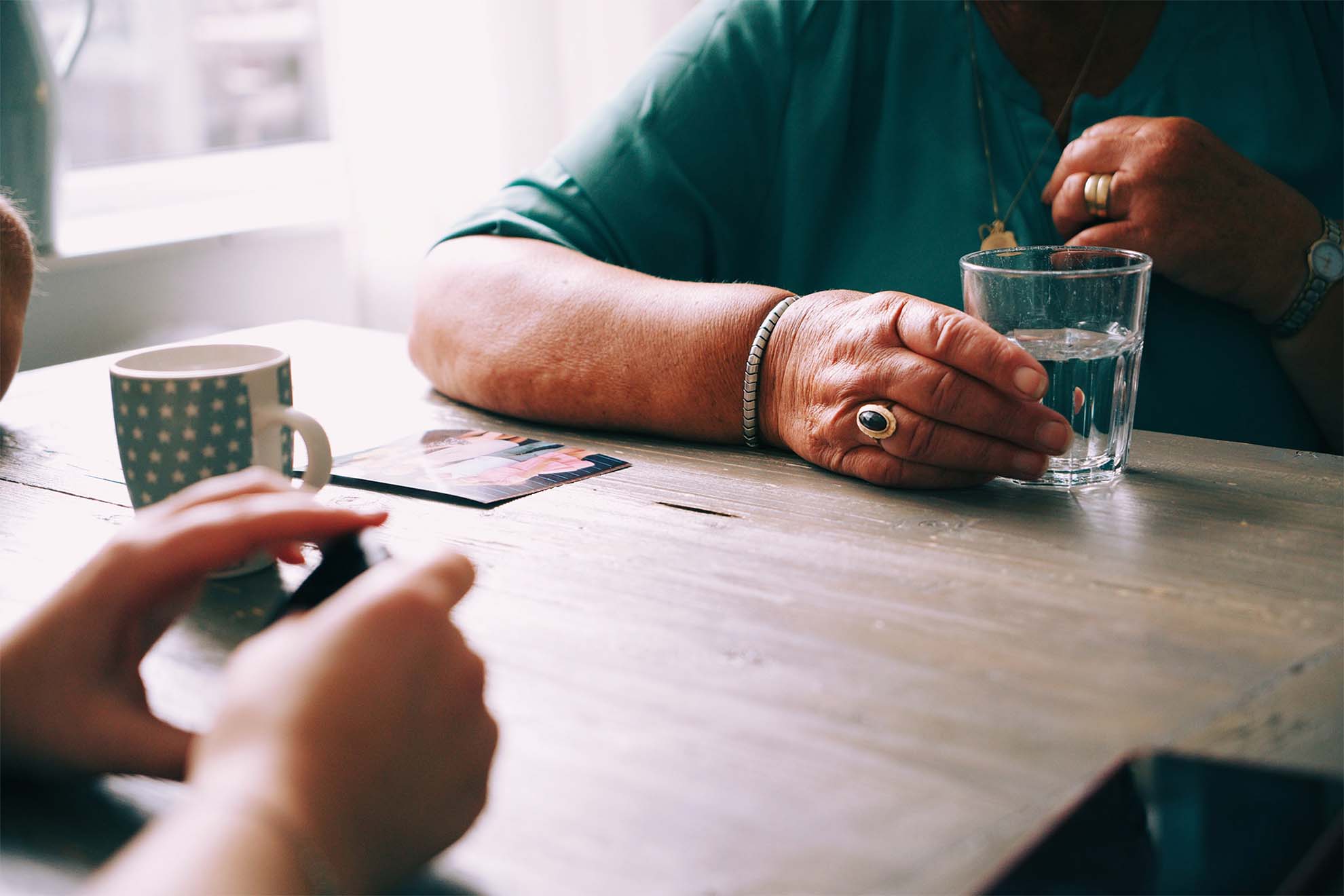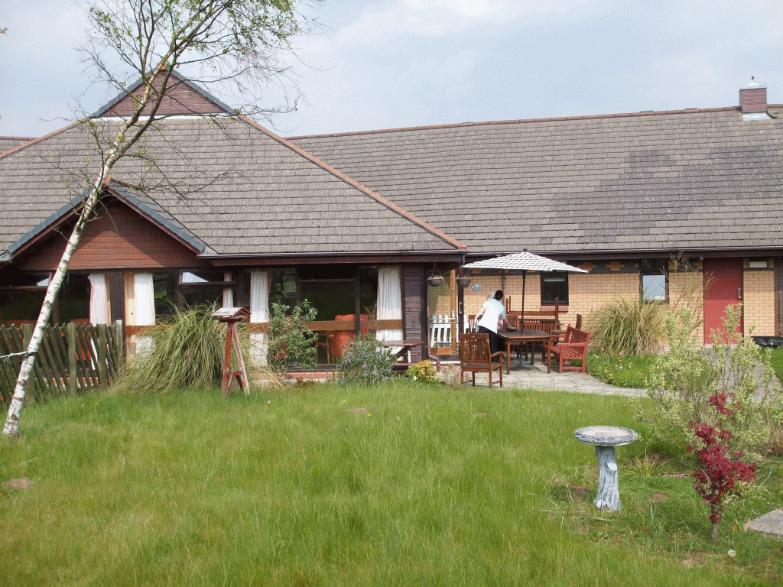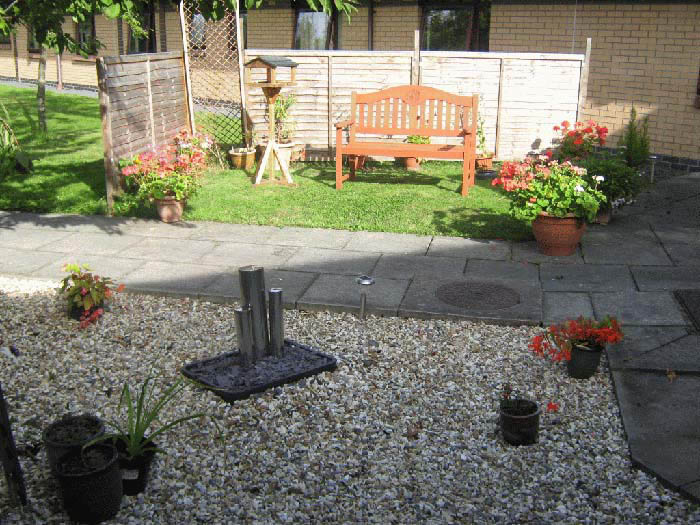The Importance of Dementia-Friendly Activities at Cumbrae Lodge Care Home

Dementia is a complex condition that affects both a person's cognitive functions and their ability to interact with the world around them. As the condition progresses, many individuals face challenges with memory, communication, and physical abilities. However, research shows that engaging in dementia-friendly activities can significantly improve the quality of life for people living with dementia. At Cumbrae Lodge Care Home, we believe that providing meaningful and tailored activities for our residents plays a vital role in maintaining their mental health, self-confidence, and overall wellbeing.
In this blog, we’ll explore the many benefits of dementia-friendly activities, from physical exercise to creative pursuits, and how these activities can help people living with dementia lead fulfilling lives.
The Role of Physical Activity in Dementia Care
Physical exercise is not only beneficial for physical health but also plays an important role in maintaining mental wellbeing in people living with dementia. Regular physical activity, whether it’s a walking group around the garden or gentle stretching, can help reduce anxiety, improve mood, and even stimulate thinking.
Research has shown that physical exercise helps maintain a person’s ability to perform daily tasks, as well as improving overall strength, balance, and coordination. Gentle activities such as tai chi or a walking group can provide low-impact options that are not too strenuous but still encourage mobility. It also creates an opportunity for residents to engage socially, boosting both their self-esteem and self-confidence.
Cognitive Stimulation and Mental Health
Cognitive stimulation activities, such as word games, memory boxes, and reminiscence therapy, have proven to help stimulate thinking and evoke memories. As dementia progresses, people may experience difficulties with verbal communication, and reminiscing about life experiences or looking at old photos can help trigger important memories. Activities like short stories, listening to favourite songs, and using sound clips are ways to create moments of connection, stimulating the senses and encouraging self-expression.
Engaging in activities that require thinking, like puzzles, crossword puzzles, or online games, can also be an enjoyable way to help maintain cognitive function. These activities stimulate both the brain and the senses, promoting a stimulating environment where people with dementia feel more engaged and less isolated. When people living with dementia are actively involved, they often feel valued and appreciated.
Creative Activities for Expression
Creative activities such as painting, knitting, or even folding laundry can bring a great sense of accomplishment and joy. For people with dementia, engaging in these kinds of activities provides a platform for self-expression, especially when verbal communication becomes difficult. The act of creating something – whether it’s a piece of art or a handcrafted item – can help maintain a sense of purpose and pride.
Creative activities can also evoke memories and allow people living with dementia to connect with their life experiences. For instance, playing with contrasting colours in artwork or engaging in sensory activities like feeling different textures can stimulate both the mind and the senses. By participating in these activities, individuals are more likely to experience positive emotions and improve their overall wellbeing.
Social Connections Through Group Activities
Group activities are particularly important as they foster social interaction and reduce feelings of loneliness. Activities like group discussions, memory lane walks, or intergenerational activities that involve family members and children, encourage verbal communication and help people living with dementia feel more connected to others. A study published by Alzheimer's Society highlights that socialising with others can help maintain cognitive health and provide opportunities for residents to share experiences and create new memories.
Participating in group activities not only benefits the mental health of the individual but also creates a sense of community at Cumbrae Lodge. Family members are encouraged to participate in these activities too, ensuring that the person feels connected to their loved ones and continues to engage with both the care home and their wider social network.
Sensory Experiences and Their Benefits
Sensory experiences – such as listening to soothing music, feeling soft fabrics, or interacting with scented oils – can provide comfort and reduce anxiety in people living with dementia. Sensory activities have been shown to help calm residents, providing a peaceful environment that improves mood and creates a positive experience.
For example, a personal playlist featuring a resident’s favourite songs can be incredibly soothing, often evoking fond memories and reducing feelings of confusion or agitation. Research also shows that engaging the senses, such as through the use of different textures or colours, stimulates the brain and promotes a sense of wellbeing.
Meaningful Activities and Self-Confidence
Meaningful activities are key to supporting the emotional and mental health of people living with dementia. These activities should not only be enjoyable but also tailored to the person’s ability and preferences. At Cumbrae Lodge, we aim to provide activities that align with the resident’s life history, ensuring that they can engage with something that feels both enjoyable and achievable.
For example, helping to prepare food, folding laundry, or participating in group exercises allows individuals to feel a sense of accomplishment and maintain a positive sense of self-worth. When a person feels they can contribute and take part in their daily life, their confidence is boosted, and they are more likely to engage in other activities.
The Impact of Reminiscence Therapy
Reminiscence therapy is an especially important form of dementia-friendly activity, as it helps people living with dementia recall past experiences. This type of therapy often involves looking at old photographs, listening to familiar music, or talking about past events. By engaging in reminiscence activities, people can maintain their identity, even as the dementia condition progresses.
For many individuals, recalling memories from childhood, family holidays, or even personal milestones can be a deeply rewarding experience. These activities help the person feel valued, allowing them to reconnect with their history and sense of self. When planning reminiscence therapy, it’s essential to include items such as memory boxes or personal mementos that evoke fond memories.
Engaging Family Members in Activities
One of the most significant benefits of dementia-friendly activities is the involvement of family members. Not only do family members provide emotional support, but their participation in activities can help strengthen the bond between them and their loved one. Intergenerational activities, such as art projects or storytime, provide an opportunity for family members of all ages to connect with each other, creating positive experiences for everyone involved.
For residents, seeing their loved ones actively engaged helps reduce feelings of isolation and encourages them to participate in more activities. As the condition progresses, involving family members in daily routines and leisure activities, such as reading short stories or simply spending time together, provides comfort and reassurance.
How to Plan Dementia-Friendly Activities
Planning dementia-friendly activities requires understanding the person’s individual preferences, abilities, and interests. It’s important to offer a variety of activities that cater to both physical and cognitive needs. For example, activities such as gardening, tai chi, or simple stretching exercises are great for those who enjoy physical activity, while word games, music sessions, and creative pursuits offer mental stimulation and opportunities for self-expression.
When planning activities, it’s also essential to consider the sensory environment. Using contrasting colours in a room, adding soft textures, and playing soothing music can help create a comfortable and inviting atmosphere. These sensory elements can also serve to calm individuals who may feel anxious or agitated.
The Many Benefits of Dementia-Friendly Activities
The benefits of dementia-friendly activities are far-reaching. Research shows that these activities can improve cognitive function, enhance emotional wellbeing, and maintain physical health. The opportunity to engage in stimulating, purposeful activities provides people living with dementia a sense of control over their lives, allowing them to continue to experience joy, self-expression, and connection.
In addition to the personal benefits for the individual, these activities also foster a sense of community and connection at Cumbrae Lodge. They encourage socialisation, strengthen relationships with family and staff, and provide a supportive environment where residents feel empowered and valued.
Promoting Mental Wellbeing Through Social Interaction
Social interaction is a crucial component of dementia care, and engaging in group activities plays an essential role in promoting mental wellbeing. When people living with dementia participate in group activities, they are able to build social connections, reduce feelings of isolation, and engage with others in a supportive environment. Group activities, such as memory games, singing sessions, or interactive storytelling, not only stimulate cognitive function but also provide an opportunity for meaningful interaction with both peers and staff members.
In these settings, verbal communication and shared experiences foster a sense of community. Many people with dementia find comfort in knowing that they are not alone in their experience, and connecting with others can help improve their overall sense of self-worth and reduce feelings of anxiety. This social stimulation can have a profound effect on reducing depressive symptoms, creating a positive and supportive atmosphere that benefits both the person with dementia and their family members.
Engaging the Senses for Greater Connection
Sensory activities provide a unique opportunity to engage the person’s senses in a way that resonates with their memories, preferences, and emotional state. People with dementia may struggle with verbal communication, but sensory experiences—such as the soothing sound of a favourite song, the feel of soft fabrics, or the scent of a familiar flower—can evoke strong emotional responses and stimulate deep connection. Sensory activities have been shown to reduce agitation, improve mood, and even trigger long-forgotten memories.
At Cumbrae Lodge, we often incorporate sensory elements into our daily activities. Residents can enjoy soothing music playlists, interact with textured objects, or engage in aromatherapy sessions that bring a sense of calm and relaxation. These sensory experiences help create a stimulating environment that supports both mental and emotional wellbeing. Moreover, these activities can spark joy and satisfaction, offering a wonderful opportunity for self-expression when words become difficult.
Tailoring Activities to the Individual’s Needs
While group activities can foster a sense of community, it’s equally important to offer individualised activities that align with each person’s unique preferences and abilities. Some residents may enjoy more independent pursuits, such as solving puzzles, journaling, or engaging in one-on-one reminiscence therapy. These activities allow the person to maintain a sense of control and autonomy, which can be incredibly empowering as dementia progresses.
By tailoring activities to the person’s needs, interests, and stage of dementia, we ensure that they can engage in something meaningful and enjoyable. For example, for those in the later stages of dementia, simple, repetitive tasks such as folding laundry or looking at a photo album can help maintain a sense of routine and provide a calming, familiar activity. Creating personalised activity plans based on the individual’s life experiences and abilities helps maintain dignity and encourages independence, contributing to a higher quality of life.
Supporting Families Through Meaningful Involvement
Family members play an essential role in the wellbeing of people living with dementia, and their involvement in activities can significantly enhance the care experience. At Cumbrae Lodge, we encourage family members to participate in daily activities, whether it’s through assisting with reminiscence therapy, sharing stories, or joining in group exercises. These moments of shared engagement allow families to remain connected to their loved ones and provide them with the opportunity to create new memories together.
Furthermore, involving families in the planning and execution of activities helps ensure that the person’s preferences and interests are respected. For instance, if a resident has a particular hobby or passion—such as gardening, knitting, or listening to a specific genre of music—families can help bring these activities to life, ensuring that their loved one feels seen, heard, and valued. This involvement not only strengthens the bond between family members and their loved ones but also fosters a greater understanding of dementia care, enabling families to provide ongoing support in a way that is compassionate and informed.
The Lasting Impact of Dementia-Friendly Activities
At Cumbrae Lodge Care Home, we are committed to providing dementia-friendly activities that support the mental, physical, and emotional wellbeing of our residents. From physical exercise to creative pursuits and sensory experiences, these activities play a vital role in improving mood, reducing anxiety, and fostering a sense of purpose.
By engaging in dementia-friendly activities that are tailored to each person’s abilities and interests, we help ensure that people living with dementia maintain a high quality of life. Not only do these activities provide meaningful experiences, but they also promote overall health and wellbeing, ensuring that our residents feel valued, engaged, and connected to their community.
If you have any questions or would like more information on the activities we offer at Cumbrae Lodge, please don't hesitate to reach out to us.






